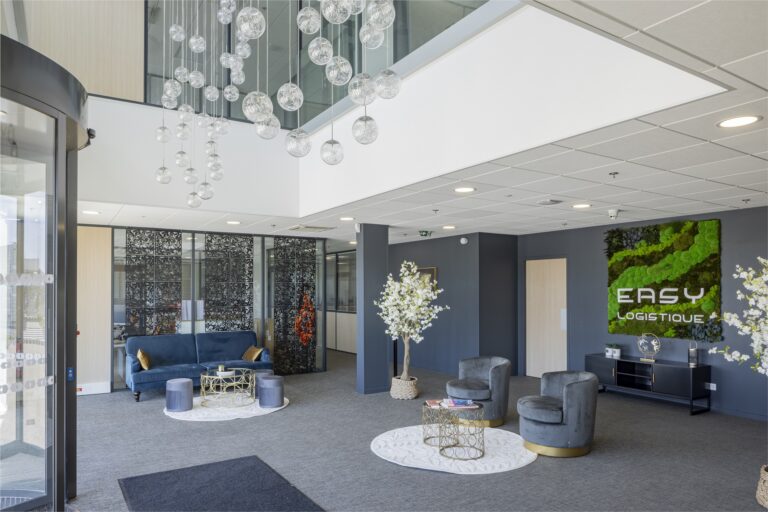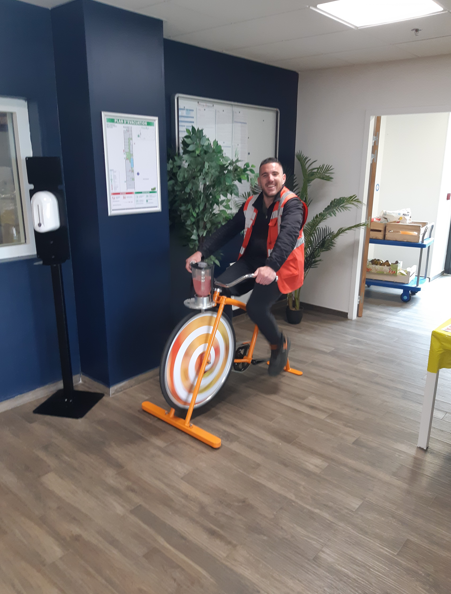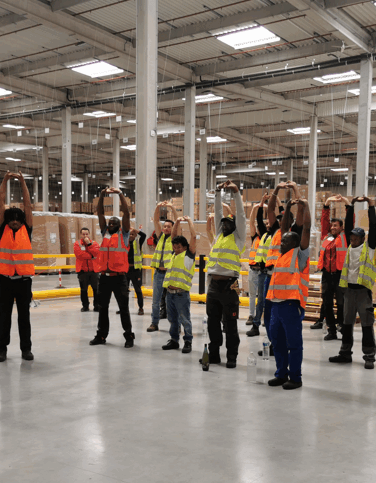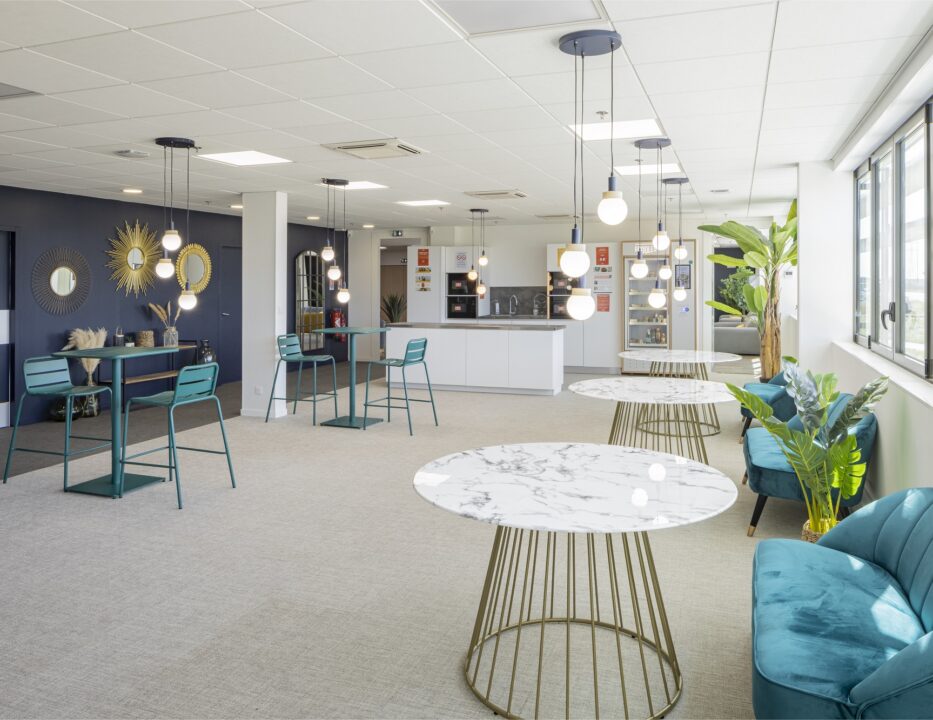Quality of life and working conditions (QVCT) is no longer a “nice-to-have” in business – it’s essential. This is especially true in logistics, where the physical demands and operational pressures are significant. Rethinking workplace wellbeing isn't just the right thing to do; it makes good business sense. Companies that look after their people set themselves up to succeed in the long term.

Logistics faces unique challenges when it comes to working conditions. Employees operate in demanding environments, exposed to physical strain from repetitive movements, heavy lifting, machinery, and fluctuating temperatures. These jobs keep our economy moving, and the people doing them deserve proper investment in their health and wellbeing.
Turning challenges into opportunities
Faced with these challenges, companies have a choice: endure them, or act. The first step is reimagining the workspace itself – creating environments where people actually want to work, spaces that are thoughtfully designed and show employees they're valued.
But this goes beyond aesthetics. It's part of a wider philosophy to cultivate belonging and recognition. When someone heads home after a day spent in a genuinely pleasant workplace, it shows in their motivation and commitment.
Break rooms, for example, should not be considered afterthoughts, but as living areas where people can unwind and recharge. At JJA, through our logistics arm Easy Logistique, we've created comfortable areas furnished with the same products our teams handle daily in the warehouses. This connection between what they work with and where they take their breaks also fosters a sense of pride and ownership.

Prevention is better than a cure
Preventing occupational injuries is another fundamental pillar of any successful QVCT approach. The main risks in logistics, including musculoskeletal problems, handling injuries, and equipment accidents, need tackling before they happen, not after.
This prevention operates on several levels. In JJA warehouses, shifts begin with muscle warm-up exercises, getting bodies ready for physical work ahead. We've also introduced exoskeletons for heavy lifting and other kit, such as strapping machines that reduce bending, and automatic wrapping machines that take the strain off employees.
These investments go hand-in-hand with our broader health programme. We run regular workshops on topics such as breast and prostate cancer awareness, and addiction. Caring for our employees means supporting their overall wellbeing, not just their safety at work.
Innovation for people
New tech is increasingly important for improving working conditions. Digital tools—tablets, voice-guided picking, VR safety training—simplify tasks and improve efficiency. But just as importantly, they show our teams we're investing in making their work better. Of course, this needs proper support to work well.
JJA invests in training teams, ensuring people see new technology as helpful rather than as a constraint. This supportive approach is what makes change successful, and helps employees embrace new ways of working. It's all part of our commitment to developing skills and helping people progress in their careers.

Building connections and showing appreciation
Beyond the technical aspects, connecting people across the business matters enormously, whether they're in warehouses or offices. At JJA, we build these connections through sports events, team challenges, and celebrations throughout the year. But this social side of QVCT needs to be backed up by other measures, such as employee recognition. Our internal newsletter shares individual achievements and team successes, making sure people's daily contributions get noticed.
Warehouse work needs to be properly valued. We must connect our teams to the bigger picture of what the company does and ensure their experience matches that of office-based colleagues. This kind of recognition is how we genuinely support our people.
The differentiating factor
Getting QVCT right has a real impact on employer brand. In logistics, where we are seeing a reduced talent pool, working conditions can be the deciding factor between companies. All else being equal, people will choose the employer that offers the better environment.
This creates a positive cycle: employees thrive in better conditions, the company becomes more attractive and performs better, and the whole industry raises its standards.
Yes, there are financial benefits – fewer accidents, less turnover, reduced absence, better productivity. But what really matters is the human impact.
Building the future together
Creating recognition and improving wellbeing builds fairer, better-performing organisations. Looking after people is an investment in our shared future. A company that puts people first is one that creates lasting value – for both employees and customers.





